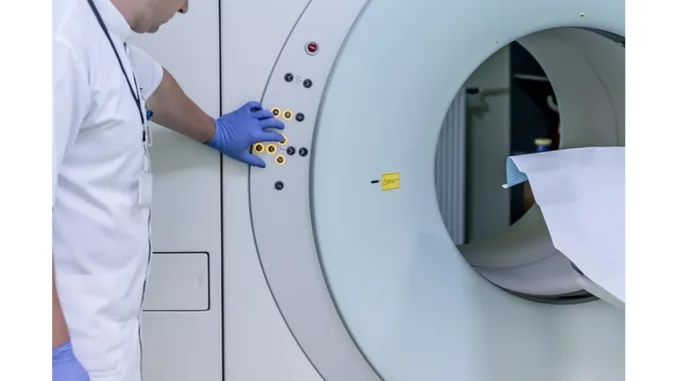
The ever-evolving landscape of healthcare is witnessing a transformative shift with the integration of artificial intelligence (AI) and advanced imaging techniques. Among the many promising innovations is the application of AI in predicting mortality through whole-body Magnetic Resonance Imaging (MRI). This cutting-edge approach not only deepens our comprehension of body composition but also facilitates more precise and personalised health insights. A recent study featured in eBioMedicine provides a fascinating glimpse into this future, underscoring the potential of AI-driven healthcare solutions.
Body composition, encompassing measurements of adipose tissue and skeletal muscle, plays an indispensable role in determining an individual’s health status. These metrics are increasingly acknowledged as vital biomarkers for evaluating health risks and predicting clinical outcomes. Historically, the quantification of body composition via imaging modalities like MRI has been restricted by time and resource limitations. Nevertheless, AI is poised to revolutionise this process by automating it, thereby enhancing efficiency and scalability.
The study in question, a collaborative effort between researchers from Germany and the United States, introduced a deep learning framework for automated volumetric body composition analysis using whole-body MRI. This innovative framework was validated in a significant Western cohort, utilising data from the UK Biobank and the German National Cohort. These extensive data sets, coupled with a meticulous MRI protocol, enabled comprehensive body composition analysis. The study’s primary aim was to develop an AI-driven framework capable of quantifying various body composition measures, including subcutaneous and visceral adipose tissue as well as skeletal muscle, to evaluate their prognostic value in predicting all-cause mortality.
One of the study’s most compelling findings was the superiority of volumetric body composition analysis over traditional single-slice methods. Although single-slice measures showed strong correlations with volumetric data, their association with mortality diminished after multivariable adjustments. This finding underscores the necessity of comprehensive, volumetric analysis for more accurate predictions. Furthermore, the study highlighted significant variations in body composition metrics across different sexes and BMI groups. For instance, females exhibited higher volumetric subcutaneous adipose tissue and skeletal muscle fat fraction, whereas males had greater visceral adipose tissue and skeletal muscle volume. During the follow-up period, participants with lower skeletal muscle volume and higher skeletal muscle fat fraction experienced significantly higher mortality rates. These insights suggest that specific body composition metrics serve as independent predictors of mortality, offering valuable guidance for personalised healthcare strategies.
The integration of AI with whole-body MRI presents immense potential for revolutionising healthcare. By facilitating automated, comprehensive body composition analysis, AI can deliver deeper insights into an individual’s health risks, paving the way for more personalised preventive strategies. This approach not only improves the accuracy of mortality predictions but also opens new avenues for proactive healthcare interventions. However, the study also acknowledges certain limitations, such as the demographic concentration on Western populations and the relatively brief follow-up period. Future research should strive to validate these findings across diverse populations and extended timeframes to ensure broader applicability.
Ultimately, the use of AI in predicting mortality through whole-body MRI signifies a significant leap forward in personalised healthcare. As technology continues to advance, this approach has the potential to become integral to clinical practice, offering more precise and personalised health insights for individuals globally. The seamless integration of AI and imaging technologies heralds a new era of healthcare, where personalised medicine can truly thrive, transforming the way we understand and approach human health.


Be the first to comment